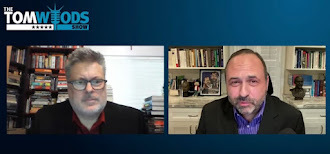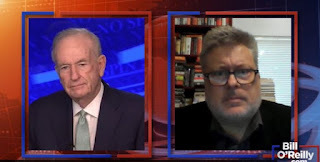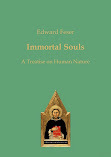Edward Feser's Blog, page 6
February 28, 2025
Mackie on Pascal’s Wager
 I’ve neverbeen a fan of Pascal’s Wager. But there’sa bit more that one might say for it than is often supposed. For example, the objections J. L. Mackieraises against it in his classic defense of atheism
TheMiracle of Theism
, though important, are not fatal. Let’s take a look at the argument, at Mackie’sobjections, and at how a defender of Pascal might reply to them.
I’ve neverbeen a fan of Pascal’s Wager. But there’sa bit more that one might say for it than is often supposed. For example, the objections J. L. Mackieraises against it in his classic defense of atheism
TheMiracle of Theism
, though important, are not fatal. Let’s take a look at the argument, at Mackie’sobjections, and at how a defender of Pascal might reply to them.The wager
Pascalbegins with the assumption that unaided reason cannot establish one way or theother whether God exists. I think he isquite wrong about that, since Ihold that several of the traditional arguments for God’s existence arecompelling. But suppose, for the sake ofargument, that Pascal is correct. We still,he holds, must “wager” over whether God exists, either betting that he does orbetting that he does not. Yet how canreason decide what bet to make, if it cannot show whether it is theism oratheism that is more likely to be true?
In itssimplest form, Pascal’s argument is this. God either exists or he does not, and you can either bet that he does orbet that he does not. Suppose you betthat he exists, and it turns out that he really does. Then you will enjoy an infinite benefit,eternal life in heaven. But suppose youbet that he exists and it turns out that he does not. You will have been mistaken, but will havesuffered no loss. Of course, whilesomeone who regards a devout and moral life to be of value in itself will agreewith that, a more worldly person would not. He would say that by mistakenly betting that God exists, he woulddeprive himself of worldly pleasures he could have enjoyed. But even if one concedes this, Pascal holds,what one will have lost is still of relatively small value, and certainly offinite value.
Now supposethat one bets that God does not exist, and that in fact he does not. Then, Pascal says, one will enjoy no gainfrom this. Or, even if a worldly personsuggests that he will have gained worldly pleasures from it, this would stillbe a relatively small gain, and certainly a finite gain. But suppose that one bets that God does notexist and it turns out he is wrong – that God does in fact exist. Then,says Pascal, he will suffer an infinite loss. He will have lost out on the infinite reward of eternal life in heaven.
When weconsider this cost-benefit analysis, concludes Pascal, we can see that the onlyrational wager to make is to bet that God exists. Now, Pascal is aware that one cannot simply andsuddenly make oneself believe in God,the way one might make the lights go on by flipping a switch. But since it is reason that tells us to bet on God’s existence, the problem, heconcludes, must be with our passions. These are what prevent belief. And they can be changed by throwing oneselfinto the religious life. Doing so willgradually alter one’s passions, and in this way belief in God can be generated indirectlyeven though it cannot be produced directly by a simple act of will.
Mackie’s critique
Against allthis, Mackie raises two main objections. First, Pascal emphasizes that there is no affront to reason in hisargument, and indeed that wagering that God exists is what reasondictates. But this, says Mackie, is notthe case, for Pascal’s advice to work up belief by way of molding one’spassions amounts to recommending self-deception. Mackie notes that Pascal might respond bysaying that what one is trying to work oneself into is really what amounts to adeeper wisdom or understanding. Butgiven Pascal’s own assumptions, argues Mackie, such a response would beg thequestion. For whether belief in God doesin fact reflect wisdom or understanding about how the world really is isprecisely what Pascal acknowledges to be impossible to establish directly by rationalarguments.
Second, saysMackie, Pascal’s argument can work only if the options we have to choose fromare two, belief that God exists or the absence of such belief. But in fact there are many more options thanthat. We have to choose between Catholicismversus Protestantism, Christianity versus Islam or Hinduism, theism versuspolytheism, and so on. And once we realizethat, we see that Pascal’s argument falls apart. No cost-benefit analysis of the issue isgoing to give us anything like the crisp and clear advice he thinks it does.
Mackie’ssecond criticism overstates the case somewhat. For not every religious view entails that one risks suffering aninfinite loss by rejecting it. Onlyreligions that posit eternal damnation entail that. And for purposes of Pascal’s reasoning, oneneed consider only religions of that kind, which narrows things down. Still, Mackie’s basic point remains thatthere are more than just the two options considered by Pascal (since there ismore than one religion that posits eternal damnation).
Are Mackie’sobjections fatal? It seems to me that thatmay depend on the epistemic situation of the person approaching Pascal’s wagerscenario. Suppose that, as far as youknow, there really are no good rational grounds at all for preferring any onereligion over another. Given theevidence and argumentation available to you, none of them seems like a liveoption, any more than believing in elves or witches does. In this case, Pascal’s Wager seems to have novalue, for the reasons Mackie gives. Itcannot by itself give you a reason to opt for one among the variety of availablereligious options, and the exercise in artificially working up belief in one ofthem would seem to entail irrationally “suppressing one’s critical faculties,”as Mackie puts it (The Miracle of Theism,p. 202). In short, as a strategy forrationally persuading the most unsympathetic sort of agnostic or atheist,Pascal’s Wager appears to fail.
Can it be salvaged?
However,suppose one is in a very different epistemic situation. Suppose, for example, that one is not entirelycertain that the arguments for God’s existence, Jesus’s resurrection, and otherelements of Christian doctrine are correct, but still judges them to be strongand thinks that Christianity is at least very plausible. Suppose that one considers further that amongthese doctrines is the teaching on original sin, according to which ourrational and moral faculties have been damaged in such a way that it is muchless easy for us to see the truth, or to even want to see it, than it wouldhave been had we not suffered original sin’s effects. Then one might judge that it may be thatwhile he regards the evidences for Christianity to be strong, the reason he neverthelessremains uncertain is due to the damage his intellect and will have suffered asa result of original sin.
Hissituation would be comparable to someone who judges that he is suffering fromchronic delusions and hallucinations, like John Nash as portrayed by RussellCrowe in the movie version of A BeautifulMind. Nash has good reasons forholding that some of things he is inclined to believe and thinks that he seesare illusory. Yet he finds he neverthelesscannot help but continue to see these things and be drawn to these paranoid beliefs. Since, overall, the most plausible interpretationof the situation is that these nagging beliefs and experiences are delusional,he decides to refuse to take them seriously and to keep ignoring them untilthey go away, or at least until they have less attraction for him. This is not contrary to reason, but ratherprecisely a way to restore reason to its proper functioning.
Similarly,the potential religious believer in my scenario judges that he has good reasonto think that Christianity really is true, even though he is also nevertheless uncertainabout it. And he also judges that he hasgood reason to suspect that his lingering doubts may be due to the weaknessesof his intellect and will that are among the effects of original sin. Suppose, then, that he appeals to somethinglike Pascal’s Wager as a way of resolving the doubts. He judges that Christianity is plausibleenough that he would suffer little or no loss if he believed in it but turnedout to be mistaken, and little or no benefit if he disbelieved in it and turnedout to be correct. And he also judges itplausible that the potential reward for believing would be infinite, and thepotential loss for disbelief also infinite. So, he wagers that Christianity is true.
Like Nash inA Beautiful Mind, he resolves toignore any nagging doubts to the contrary, throwing himself into the religiouslife and thereby molding his passions and cognitive inclinations until thedoubts go away or at least become less troublesome. And like Nash, he judges that this is in noway contrary to reason, but rather precisely a way of restoring reason to itsproper functioning (given that the doubts are, he suspects, due to thelingering effects of original sin).
In this sortof scenario, then, it’s not that the Wager by itself takes someone from initiallyfinding God’s existence in no way likely, all the way to having a rational beliefin God’s existence. That, as I’ve agreedwith Mackie, is not plausible. Rather,in my imagined scenario, reason has already taken the person up to thethreshold of a solid conviction that God exists, and the Wager simply pusheshim over it.
No doubt,even this attributes to reason a greater efficacy in deciding about theologicalmatters than Pascal himself would have been willing to acknowledge. But, tentatively, I judge it the mostplausible way for the Pascalian to try to defend something like the Wagerargument, at least against Mackie’s objections. (And I don’t claim more for it than that. Naturally, there is a larger literature onthe argument that I do not pretend to have addressed here.)
February 20, 2025
What proceeds from Hart (Updated)
Every time atruce between David Bentley Hart and me has been broken, it has been broken byhim. And more than once, friendly andfence-mending exchanges in private have been followed by a public shivving onhis part. The man has no honor. In a new documentary, hecasually remarks that “Feser… really is a person for whom Christianity ismostly about, you know, killing people or, or you know, it’s about beating them.” The surrounding remarks are no lessnasty. (Readers who don’t want to watchthe entire thing can fast forward to about 57 minutes into it.)
The truth isthat I have merely defended the teaching of scripture and two millennia ofChristian tradition that capital punishment and corporal punishment can, undersome circumstances, be justifiable. Thetruth is that this is a small part of my work, the vast bulk of which (asanyone who follows it or peruses my list of publications can easily verify) isdevoted to other and unrelated matters. Thetruth is that I have consistently and vigorously condemned the excessive use ofviolence, from Dresden and Hiroshima to Gaza. And the truth is also that I have, as Hartwell knows, done my part to try to help him when he was in need.
None of thisdeters him from issuing the grave calumny that for me, Christianity is mostlyabout killing and beating people.
The man hasno honor.
UPDATE: Severalreaders call attention to this apology, apparently from Hart, in the commentssection at YouTube: “Well, I apologize to Ed Feser. When this was recorded Iwas obviously angry at him over the public whipping thing… But I have gottenover it. And we will never agree on whatChristianity is… But I acknowledge that he is a good person at heart, with badideas.”
Fairnessrequires acknowledging this apology. Fairness also requires noting that it islikely that far fewer people will see it than will hear the calumny for which Hartis apologizing.
February 12, 2025
Immigration and academia on The Tom Woods Show
 This week I appear on The Tom Woods Show to discuss theimmigration debate, the state of academic philosophy, and other matters.
This week I appear on The Tom Woods Show to discuss theimmigration debate, the state of academic philosophy, and other matters.
February 7, 2025
Trump’s Gaza proposal is gravely immoral
 Today mycritique of Trump’s Gaza proposal appears at the National Catholic Register. Friends,whether you agree or disagree, I urge you to allow your opinions on this gravematter to be molded only by dispassionate reason and moral principle ratherthan anger and partisanship.
Today mycritique of Trump’s Gaza proposal appears at the National Catholic Register. Friends,whether you agree or disagree, I urge you to allow your opinions on this gravematter to be molded only by dispassionate reason and moral principle ratherthan anger and partisanship.
February 5, 2025
Just war principles and the Mexican drug cartels
 In mylatest article at Postliberal Order,I argue that under certain conditions, U.S. military intervention in Mexicoagainst the drug cartels would be justifiable according to the principles oftraditional just war theory.
In mylatest article at Postliberal Order,I argue that under certain conditions, U.S. military intervention in Mexicoagainst the drug cartels would be justifiable according to the principles oftraditional just war theory.
February 4, 2025
Catholics and immigration on No Spin News (Updated)
 Those who follow me on Twitter/X will know that Iposted there heavily last week about the controversy over Catholicism andimmigration. This evening, I appear onBill O’Reilly’s
No Spin Newsprogram
to discuss the controversy. O'Reilly Premium Members can watch the segment here.UPDATE 2/5: You can now watch the interview here.
Those who follow me on Twitter/X will know that Iposted there heavily last week about the controversy over Catholicism andimmigration. This evening, I appear onBill O’Reilly’s
No Spin Newsprogram
to discuss the controversy. O'Reilly Premium Members can watch the segment here.UPDATE 2/5: You can now watch the interview here.
Catholics and immigration on No Spin News
 Those who follow me on Twitter/X will know that Iposted there heavily last week about the controversy over Catholicism andimmigration. This evening, I appear onBill O’Reilly’s
No Spin Newsprogram
to discuss the controversy. O'Reilly Premium Members can watch the segment here.
Those who follow me on Twitter/X will know that Iposted there heavily last week about the controversy over Catholicism andimmigration. This evening, I appear onBill O’Reilly’s
No Spin Newsprogram
to discuss the controversy. O'Reilly Premium Members can watch the segment here.
January 30, 2025
More on Immortal Souls
 The latest feedback on
ImmortalSouls: A Treatise on Human Nature
. At Twitter/X, theologian Ulrich Lehner writes: “Awonderful book. Sharply sharply argued, readable, and always illuminating.” Szilvay Gergely kindly reviewsthe book in the Hungarian magazine Mandiner. From the review: “Feser… can arguesurprisingly effectively and convincingly… If you considered the immortality ofthe soul (and the whole person) to be an unsupported myth, then Feser showsthat this is not the case.”
The latest feedback on
ImmortalSouls: A Treatise on Human Nature
. At Twitter/X, theologian Ulrich Lehner writes: “Awonderful book. Sharply sharply argued, readable, and always illuminating.” Szilvay Gergely kindly reviewsthe book in the Hungarian magazine Mandiner. From the review: “Feser… can arguesurprisingly effectively and convincingly… If you considered the immortality ofthe soul (and the whole person) to be an unsupported myth, then Feser showsthat this is not the case.”
January 23, 2025
The ethics of invective
 It’s often saidthat while sticks and stones can break our bones, words can never hurt us. But it isn’t true. Were we mere animals it would be true, butwe’re not. We are rational social animals. Hencewe can be harmed, not only in ways that injure the body, but also in ways thatbring distress to the mind and damage our standing with our fellow humanbeings. These harms are typically not asgrave as those involving bodily trauma, but they are real harms all thesame. Indeed, mockery and the loss ofone’s good name can even be felt by one who suffers them as worse than (atleast some) bodily harms.
It’s often saidthat while sticks and stones can break our bones, words can never hurt us. But it isn’t true. Were we mere animals it would be true, butwe’re not. We are rational social animals. Hencewe can be harmed, not only in ways that injure the body, but also in ways thatbring distress to the mind and damage our standing with our fellow humanbeings. These harms are typically not asgrave as those involving bodily trauma, but they are real harms all thesame. Indeed, mockery and the loss ofone’s good name can even be felt by one who suffers them as worse than (atleast some) bodily harms. Ordinarily,of course, it is wrong to inflict bodily harm on someone. But not always. It can be permissible and sometimes evenobligatory to do so – for example, in self-defense or in punishment of a crime. It is not inflicting bodily harm per se that is bad, but ratherinflicting it on someone who does not deserve it. The difference between the guilty and theinnocent is crucial. Bank robbers shootingat police and the police who fire back at them are inflicting the same sort ofharm on each other, but they are not morally on a par. The robbers are doing something evil but thepolice are doing something good, namely defending themselves and others fromthe evildoing of the robbers.
Somethinganalogous can be said about the harm we inflict with words. Ordinarily we should avoid this, but notalways. Sometimes a person deserves suchharm, and in some cases we do good by inflicting it. Thus Aquinas writes:
Just as it is lawful to strike a person, or damnify him inhis belongings for the purpose of correction, so too, for the purpose ofcorrection, may one say a mocking word to a person whom one has to correct. It is thus that our Lord called the disciples“foolish,” and the Apostle called the Galatians “senseless.” Yet, as Augustine says (De Serm. Dom. in Monte ii, 19), “seldom and only when it is verynecessary should we have recourse to invectives, and then so as to urge God'sservice, not our own.” (Summa TheologiaeII-II.72.2)
Naturally,there are some harms we inflict through words that are never permissible. For example, calumny involves damaging someone’s reputation by spreadingfalsehoods about him. This is always andintrinsically wrong. But there areharmful words of other kinds that are not always and intrinsically wrong.
Two kinds inparticular are especially relevant to public debate about matters of politics,philosophy, theology, and the like. There are, first of all, public insults and mockery of the kind that maydecrease the honor or esteem in which another person is held. And second, there is the public disseminationof truths about another person that tend to damage his reputation. When insults and mockery of the sort inquestion are not deserved, they amount to what moral theologians call the sinof contumely. When such damage to a person’s reputation isnot deserved, it amounts to what is called the sin of detraction.
Needless tosay, the sins of contumely and detraction are extremely common in public debate– perhaps more common today than ever before, given the rise of theinternet. But sometimes a person maydeserve to be spoken of in ways that dishonor him or damage his reputation, andsometimes the pubic good may even be served by such speech. In these cases, such harmful words do notamount to contumely or detraction, any more than a policemen’s killing a bankrobber who shoots at him amounts to murder.
Hence, inhis treatment of detraction, Aquinas holds that “if it is for the sake of somethinggood or necessary that someone utters words by which someone else’s reputationis diminished, then, as long as the right circumstances are preserved, this isnot a sin and cannot be called detraction” (SummaTheologiae II-II.73.2, Freddosotranslation). For example, “itis not detraction to reveal someone’s hidden sin by denouncing him for the sakeof his improvement or by accusing him for the sake of the good of public justice.” Similarly, moral theologians John McHugh andCharles Callan note that “the public good is to be preferred to a falsereputation, for the public welfare is the ground for the right to suchreputation, the subject himself being unworthy of the good name he bears” (Moral Theology, Volume II, p. 243). Hence, there is nothing wrong with revealingsomeone’s criminal behavior to authorities or to those who might be harmed byit, or with warning consumers of fraudulent business practices.
In general,though a good person has an absolute right to a good reputation, there is noabsolute right to such a reputation among those who do not deserve it. As McHugh and Callan write:
The right to a false reputation is a relative and limitedright, one which ceases when the common good on which it rests no longersupports it (e.g. when it cannot be maintained without injustice). Moreover, there is no right to anextraordinary reputation, if it is based on false premises, for the common gooddoes not require such a right, and hence it is not detraction to show that therenown of an individual for superior skill or success is built up onadvertising alone or merely on uninformed rumor. (p. 225)
For example,it is not detraction to point out that a commentator well-known for hisopinions about some topic (political, scientific, philosophical, theological,or whatever) in fact is not competent to speak about it and that his views havelittle value. Even if this damages hisreputation, there is no sin of detraction, because no one has a right to a reputation for some excellencethat in fact he lacks. It can even be obligatoryfor those who do have the relevant expertise to call attention to such aperson’s incompetence, lest those who don’t know any better are misled by him.
Similarly, asAquinas says in the first passage from the Summaquoted above, it is not always sinful, and indeed can even be necessary, todeploy insult or mockery. McHugh and Callannote that “those are not guilty of contumely who speak words that are nothonorable to persons deserving of reproof” (p. 211). Naturally, people who deserve it wouldinclude those who are themselves guilty of detraction or contumely. McHugh and Callan hold that in self-defenseagainst such verbal attacks, “it is lawful to deny the charge, or by retort toturn the tables on the assailant” (p. 216).
It is truethat in some cases it can be virtuous simply to remain humbly silent in theface of detraction or contumely. Butthis is not always necessary or advisable. McHugh and Callan write:
One should repel contumely when there are good and sufficientreasons for this course, and hence Our Lord… refuted those who decried Him as ablasphemer, or glutton, or demoniac, or political disturber…
The good of the offender, in order that his boldness besubdued and that he be deterred from such injuries in the future, is asufficient reason. Hence the words ofProverbs (xxvi. 5) that one should answer a fool, lest he think himself wise.
The good of others is another reason, in order that they benot demoralized by the vilification of one whom they have looked up to as anexample and guide, especially if silence will appear to be a sign of weaknessor carelessness or guilt. Hence, St.Gregory says that preachers should answer detractors, lest the Word of God bewithout fruit.
The good of self is a third reason for replying to contumely,for to enjoy the respect and esteem of others helps many a good person to actworthily of the opinion in which he is held, and it restrains many a sinnerfrom descending to worse things than those of which he is guilty. (pp. 215-16)
It is nosurprise, then, that scripture and Church history are full of saints whodeployed verbal attacks when engaging with their enemies. Elijah mocked the priests of Baal (1 Kings18:27). St. John the Baptist called thePharisees and Sadducees a “brood of vipers” (Matthew 3:7). Christ Himself condemned the scribes andPharisees as “whitewashed tombs” whose false outward piety disguised an inner“filthiness” (Matthew 23:27). St. Paulpilloried Elymas the magician as a “son of the devil, enemy of allrighteousness, full of all deceit and villainy” (Acts 13:10). St. Jerome was well-known for his invective. St. Thomas More criticizedMartin Luther with vituperation so extreme that some of it could notbe quoted in a family publication. Andso on.
Of course,by no means does this entail that “anything goes.” Again, calumny is absolutely ruled out, nomatter who the target is. And even whendeployed against wrongdoers, verbal attacks that are excessive or motivated bya vengeful spirit rather than defense of the good would amount to detraction orcontumely and thus be sinful. The point,though, is that it would be a mistake to suppose that those who fight invectivewith invective are necessarily nobetter than those they are responding to. That would be like supposing that police who return fire at bank robbersare no better than the bank robbers. Itignores the crucial distinctions between the guilty and the innocent, andbetween the aggressor and the defender.
It can beespecially appropriate to employ insulting and otherwise harsh language whendealing with those who both promote bad ideas and are themselves gratuitouslyabusive in their dealings with others. Andthat is not merely because they deserve such tit-for-tat. It is because a softer approach is oftensimply ineffective in countering their errors. Sometimes a bully will not be stopped by anything but a punch in thenose. And when the bullying takes theform of invective, the punch in the nose should take the same form.
Consider theNew Atheist movement, now pretty much dead but once very influential. As I showed in my book The Last Superstition: A Refutation ofthe New Atheism, the arguments of New Atheist writers like RichardDawkins and Sam Harris were laughably sophomoric. But they were presented with supremeself-confidence, and dripped with condescension and contempt for the religiousthinkers who were their targets. Hence,though the New Atheism’s intellectual content was extremely thin, its polemicalstyle gave it a rhetorical force that could be intimidating to many.
Whenresponding to such polemics, it is insufficient politely to point out fallaciesand errors of fact. For it isn’t the intellectualquality of the arguments that is doing the main work in the first place, butrather the aggressive and self-assured tone. To leave that unrebutted is to leave the façade largely intact. No matter how carefully you explain why anargument is no good, many readers will still retain the impression that if itis presented with such arrogant self-confidence, it must have something going for it. A weak case can convince many simply on thestrength of the unearned prestige of the person presenting it. Hence that prestige must be lowered bydeploying against it the same sort of rhetoric that created it.
Note thatthis does not involve any ad hominemfallacy. An ad hominem fallacy involves attacking a person instead of attacking some claim or argument the person made, while atthe same time pretending that one has thereby refuted the claim or argumentitself. That is not what I am talkingabout. Of course one must, first andforemost, refute the claims and arguments themselves. What I am saying is that in addition to doing that, one must sometimes attack the credibilityof the person, when that credibility is illusory but will lead his listenerswrongly to take his views seriously. (Isay more hereabout what an ad hominem fallacy isand what it is not.)
Hence, myapproach in The Last Superstition wasto deploy against the New Atheists superior intellectual firepower coupled withequal and opposite rhetorical force. Ihave over the years dealt with various other sophists, blowhards, and bulliesin the same fashion. I make no apologiesfor that, because such treatment is justifiable in light of the principles I’vebeen setting out here. But by no meansdo I, or would I, take this approach with others with whom I disagree. Mostly it’s uncalled for and unnecessary.
OccasionallyI’m nevertheless accused of being too frequently aggressive in style. That this is not true is something for whichthere is some objective evidence. Of thefourteen books I’ve written, co-written, or edited, exactly one is written in the polemical style inquestion – namely, The Last Superstition. Of the over 250 articles I’vepublished (academic and popular articles, book reviews and the like), only about15% are in that style. I’ve also writtenwell over 1500 blog posts, and while it would take more time than I’m willingto spend to determine the percentage of polemical articles among them, I’dwager that it’s about the same.
In anyevent, usually the people who fling the accusation are themselves routinely vituperative,or are fans of some vituperative writer to whom I’ve responded in kind. Though the “sticks and stones” cliché isn’ttrue, another well-known saying certainly is: Those who like to dish it out oftencan’t take it.
January 14, 2025
A report from the Great Los Angeles Fire
 On the extent,causes, and lessons of the disaster, in my latest articleat Postliberal Order.
On the extent,causes, and lessons of the disaster, in my latest articleat Postliberal Order.
Edward Feser's Blog
- Edward Feser's profile
- 335 followers



